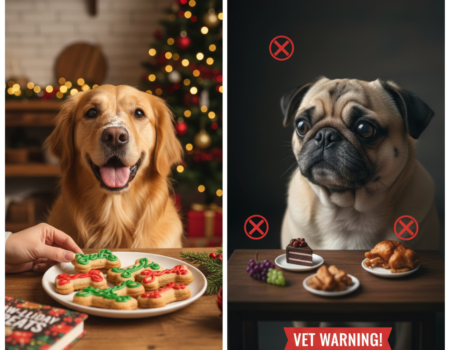“Until one has loved an animal, a part of one’s soul remains unawakened.” – Anatole France
As a cat owner, I understand the love and concern we have for our feline companions. We want to ensure that they have a happy and healthy life. That’s why it’s important to be informed about what we feed them. One common question that arises is whether cats can have peanut butter. After all, many of us enjoy peanut butter as a tasty treat, so it’s natural to wonder if our furry friends can have a taste too.
In this article, I will provide you with the essential facts surrounding cats and peanut butter. While the idea of giving your cat a spoonful of peanut butter might seem innocent enough, there are important considerations to keep in mind regarding feline nutrition and health. Let’s explore whether peanut butter is safe for cats and what potential risks it may pose.
Can Cats Eat Peanut Butter?
Although cats can technically eat peanut butter, it is not recommended as a regular part of their diet. Peanut butter does not provide any nutritional value for cats and can potentially cause health issues, especially for cats with pre-existing conditions.
“While cats can technically eat peanut butter, it is not recommended as a regular part of their diet.”
Cats are obligate carnivores, meaning they require meat proteins to meet their nutritional needs. Peanut butter does not fulfill these requirements and can lead to digestive problems, weight gain, and even choking hazards for cats.
“Peanut butter does not provide any nutritional value for cats and can potentially cause health issues, especially for cats with pre-existing conditions.”
Feeding cats peanut butter should be limited, and it is essential to monitor their tolerance and any adverse effects. Cats with health issues such as diabetes, kidney problems, or gastrointestinal troubles should avoid peanut butter altogether.
The Potential Risks of Feeding Cats Peanut Butter
While cats can consume peanut butter in small amounts without immediate harm, there are several risks involved. One significant risk is the high fat content of peanut butter, which can lead to weight gain and potentially worsen pre-existing heart or kidney issues in cats. Additionally, the stickiness and thickness of peanut butter can pose a choking hazard, especially for cats who eat it too quickly or in large amounts.
“The high fat content of peanut butter can lead to weight gain and potentially worsen pre-existing heart or kidney issues in cats.”
Furthermore, some varieties of peanut butter may contain harmful additives like xylitol, which is toxic to cats. It is crucial to check the ingredients and avoid any peanut butter products that contain xylitol or other harmful substances.
| Potential Risks | Effects on Cats |
|---|---|
| High fat content | Weight gain, heart issues |
| Choking hazard | Obstruction, respiratory issues |
| Presence of xylitol | Toxicity, potential organ damage |
“Feeding cats peanut butter should be limited, and it is essential to monitor their tolerance and any adverse effects.”
It’s best to consult with a veterinarian before introducing peanut butter or any new food to a cat’s diet, especially if they have underlying health conditions. Veterinarians can provide personalized advice based on a cat’s specific needs and help ensure their overall well-being.
Why is Peanut Butter Bad for Cats?
Peanut butter is not suitable for cats and can have negative effects on their health. As obligate carnivores, cats have unique dietary requirements that cannot be fulfilled by peanut butter. While it may be tempting to share this tasty treat with your feline friend, it’s important to understand why it is not recommended.
1. Lack of nutritional value:
Cats need a diet rich in animal proteins to thrive. Peanut butter does not provide the essential nutrients that cats require for optimal health. It lacks vital nutrients such as taurine, an amino acid that is crucial for their well-being.
2. Poor digestion:
Cats have difficulty digesting certain foods, and peanut butter is one of them. Their digestive systems are not designed to process high amounts of fat, and consuming peanut butter can lead to digestive issues, including diarrhea and upset stomach.
3. Weight gain:
Peanut butter is high in calories, fat, and sugar. Feeding it to your cat can contribute to weight gain, which can have detrimental effects on their overall health and put them at risk of developing obesity-related conditions.
4. Potential choking hazard:
The thick and sticky consistency of peanut butter can present a choking hazard for cats, especially if they try to swallow a large amount or if it gets stuck in their throat. This can be a life-threatening situation and should be avoided at all costs.
5. Allergies:
While rare, some cats may have peanut allergies or sensitivities. Feeding them peanut butter can trigger allergic reactions, including itching, skin irritation, respiratory issues, or gastrointestinal upset.
To illustrate the potential dangers of feeding cats peanut butter, consider the following quote:
“Peanut butter may be a tasty treat for humans, but it can have adverse effects on cats. It lacks essential nutrients, can cause digestive issues, contribute to weight gain, and even pose a choking hazard. As pet owners, it’s important to prioritize the health and well-being of our feline companions by providing them with a balanced and species-appropriate diet.”
When Can Cats Eat Peanut Butter?
While cats can technically eat peanut butter, it is best to limit their consumption to instances when it is necessary, such as using it to hide medication or as an occasional treat. When giving peanut butter to cats, it is important to check the nutrition label, limit the amount to a small portion, and monitor their tolerance for any negative side effects.
Guidelines for Feeding Cats Peanut Butter:
- Limit peanut butter consumption to necessary instances like medication administration or occasional treats.
- Check the nutrition label to ensure there are no harmful additives, such as xylitol.
- Offer only a small portion of peanut butter to cats.
- Monitor cats for any negative side effects, such as gastrointestinal discomfort or allergic reactions.
Feeding peanut butter to cats should be done with caution and in moderation. While it can be an enjoyable treat for some cats, excessive consumption can lead to health issues and risks. It is always best to consult with a veterinarian for personalized advice regarding your cat’s dietary needs.
| Pros of Feeding Cats Peanut Butter | Cons of Feeding Cats Peanut Butter |
|---|---|
|
|
Why is Peanut Butter Bad for Cats with Health Issues?
Cats with health issues such as diabetes, kidney problems, or gastrointestinal troubles should avoid peanut butter altogether. Peanut butter can exacerbate their conditions and cause diarrhea, upset stomach, or gas. The high fat, sugar, and salt content in peanut butter can worsen the symptoms of various health issues in cats.
Peanut Butter Risks for Cats
Feeding cats peanut butter can pose several risks. The high fat and sugar content of peanut butter can lead to gastrointestinal issues and weight gain in cats. This is especially true for cats with heart or kidney issues, as the excess fat can exacerbate these conditions.
The thick consistency of peanut butter can also be a choking hazard for cats, particularly for those who consume it too quickly or without proper supervision. Cats have delicate throats and can easily choke on sticky substances like peanut butter.
“Peanut butter can be a choking hazard for cats due to its thick consistency and sticky nature.”
Additionally, some varieties of peanut butter may contain harmful additives like xylitol. Xylitol is a sweetener that is toxic to cats and can cause severe health issues, including low blood sugar and liver damage. It is important to always check the ingredients label and ensure that the peanut butter does not contain any harmful additives before offering it to your feline friend.
Example Types of Peanut Butter Risks for Cats:
- Potential weight gain
- Gastrointestinal issues
- Choking hazards
- Possible toxicity from additives like xylitol
Given these risks, it is best to avoid feeding peanut butter to cats. There are plenty of other treats available that are specifically formulated for feline consumption and offer nutritional benefits.
Alternatives to Peanut Butter for Cats
Instead of peanut butter, there are several healthier treat options for cats. Cats deserve tasty and nutritious treats just like humans do! Here are some alternative options that can be safely enjoyed by our feline friends:
- Meat-based treats: Small pieces of chicken or turkey breast can be a safe and delicious alternative to peanut butter. These treats provide cats with essential proteins and can be a great way to reward good behavior.
- Tuna or salmon: Canned tuna or salmon in water can also be offered as a snack to cats. Just make sure to choose varieties that are specifically formulated for cats and avoid those that contain added salt or seasonings.
When choosing treats for your cat, it’s important to prioritize their health and well-being. Look for options that provide nutritional benefits, such as high-quality protein sources. Remember to give treats in moderation to maintain a balanced diet for your furry friend.
Can Cats Have Peanuts?
While peanuts are not toxic to cats, it’s important to approach them with caution. Peanuts may be a tempting treat, but they offer no nutritional benefits for our feline friends. In fact, they can be quite high in calories, which can contribute to weight gain if given in excess.
Additionally, peanuts can pose a choking hazard for cats, especially if they are swallowed whole or if they still have their shells intact. As responsible cat owners, it’s best to avoid giving peanuts to our furry companions to prevent any potential choking incidents.
If you’re looking for safe and healthy alternatives to peanuts, there are several options available. Consider offering your cat small pieces of cooked chicken or turkey breast as a delicious and nutritious treat. Tuna or salmon canned in water can also be a tasty snack for cats.
Remember to always monitor your cat’s response to new foods and treats. Every cat is unique, and some may have sensitivities or allergies to certain ingredients. If you’re unsure about introducing peanuts or any other food to your cat’s diet, consult with your veterinarian for guidance.
What to Do If Your Cat Ate Peanut Butter
If your cat accidentally ate peanut butter, it’s important to monitor them for any signs of digestive distress. While peanut butter itself is not toxic to cats, there are a few things to consider.
If the peanut butter did not contain any harmful additives like xylitol, follow these steps:
- Observe your cat for any signs of vomiting, diarrhea, or loss of appetite.
- Ensure your cat has access to fresh water to stay hydrated.
- Keep an eye on their litter box to monitor their bowel movements.
If your cat shows any concerning symptoms or you’re unsure about the ingredients in the peanut butter, it’s best to consult your veterinarian for further guidance.
Remember, it’s always better to be cautious and seek professional advice when it comes to your cat’s health.
Other Foods to Avoid for Cats
In addition to peanut butter, there are several other foods that should be avoided for cats. These foods can be toxic to cats and can cause various health issues. It’s important to familiarize yourself with the list of foods that are not safe for cats to ensure the well-being of your feline friend.
1. Chocolate
Chocolate contains theobromine, a substance that is toxic to cats. Even small amounts of chocolate can cause symptoms such as vomiting, diarrhea, increased heart rate, and even seizures. It’s best to keep all chocolate products out of your cat’s reach.
2. Onions and Garlic
Onions and garlic contain compounds that can cause damage to a cat’s red blood cells, leading to anemia. Ingesting these foods can result in weakness, lethargy, and loss of appetite. It’s crucial to avoid feeding cats any dishes or foods that contain onions or garlic.
3. Grapes and Raisins
Grapes and raisins can cause kidney failure in cats. Even a small amount can be toxic and lead to symptoms such as vomiting, diarrhea, abdominal pain, and decreased urine production. It’s best to keep grapes and raisins away from your cat at all times.
4. Alcohol
Alcohol is extremely dangerous for cats. Even small amounts can cause alcohol poisoning, leading to symptoms such as disorientation, coordination problems, respiratory distress, and even coma. It’s vital to ensure that your cat doesn’t have any access to alcoholic beverages.
5. Raw Eggs, Meat, and Fish
Raw eggs, meat, and fish can contain harmful bacteria and parasites such as salmonella and E. coli. Ingesting these raw foods can lead to food poisoning and severe gastrointestinal issues in cats. It’s crucial to always cook these foods thoroughly before offering them to your cat.
6. Milk and Dairy Products
Contrary to popular belief, cats are lactose intolerant and cannot properly digest milk or dairy products. Feeding them dairy can result in digestive upset, including diarrhea and stomach discomfort. It’s best to avoid giving cats milk or dairy as a treat.
7. Caffeine
Caffeine is toxic to cats and can cause excessive stimulation of the nervous system, leading to symptoms such as restlessness, rapid breathing, increased heart rate, tremors, and even seizures. It’s crucial to ensure that your cat doesn’t have access to any caffeinated beverages or products.
Remember, the foods mentioned above are just some examples of what to avoid feeding your cat. It’s vital to do thorough research or consult with a veterinarian to create a safe and balanced diet for your feline companion.
Toxic Foods for Cats
| Foods | Toxic Effects |
|---|---|
| Chocolate | Theobromine toxicity, vomiting, diarrhea, increased heart rate, seizures |
| Onions and Garlic | Anemia, weakness, lethargy, loss of appetite |
| Grapes and Raisins | Kidney failure, vomiting, diarrhea, abdominal pain |
| Alcohol | Alcohol poisoning, disorientation, respiratory distress, coma |
| Raw Eggs, Meat, and Fish | Bacterial and parasitic infection, food poisoning, gastrointestinal issues |
| Milk and Dairy Products | Lactose intolerance, digestive upset, diarrhea, stomach discomfort |
| Caffeine | Nervous system stimulation, restlessness, rapid breathing, tremors, seizures |
It’s crucial to keep these foods away from your cat to ensure their health and well-being. If you suspect your cat has ingested any toxic food, contact your veterinarian immediately for guidance and assistance.
Conclusion
While cats can technically have peanut butter, it’s best to approach this treat with caution. Peanut butter offers no nutritional benefits for cats and can potentially lead to health issues, especially for cats with pre-existing conditions. Before introducing peanut butter or any new food to your cat’s diet, it’s important to consult with your veterinarian to ensure their safety and well-being.
Although cats may enjoy the taste of peanut butter, it is not a suitable replacement for their regular diet. As obligate carnivores, cats require meat proteins to meet their nutritional needs. Peanut butter lacks the essential nutrients that cats need to thrive, and excessive consumption can lead to gastrointestinal problems, weight gain, and even choking hazards.
Therefore, while a small amount of peanut butter may be acceptable as an occasional treat or as a vehicle for medication, it should not become a staple in your cat’s diet. Instead, focus on providing your feline friend with nutritionally balanced meals that meet their specific dietary requirements.
Remember, your cat’s health is of utmost importance. By prioritizing their well-being and consulting with a veterinarian, you can make informed decisions about what is best for your furry friend. So, while cats can have peanut butter, it’s crucial to be mindful of the potential risks and to prioritize their overall nutritional needs.
FAQ
Can cats eat peanut butter?
While cats can technically eat peanut butter, it is not recommended as a regular part of their diet. Peanut butter has no nutritional value for cats and can cause gastrointestinal issues, weight gain, and even choking hazards. Cats with health issues such as diabetes, kidney problems, or gastrointestinal troubles should avoid peanut butter altogether.
Why is peanut butter bad for cats?
Peanut butter is considered bad for cats because it has no nutritional value for them. Cats are obligate carnivores, meaning they need meat proteins to meet their nutritional needs. Peanut butter is not metabolized properly by cats and contains a high amount of fat. It can also cause gastrointestinal issues, weight gain, and even choking hazards.
When can cats eat peanut butter?
Although cats can technically eat peanut butter, it is best to limit their consumption to instances when it is necessary, such as using it to hide medication or as an occasional treat. When giving peanut butter to cats, it is important to check the nutrition label, limit the amount to a small portion, and monitor their tolerance for any negative side effects.
Why is peanut butter bad for cats with health issues?
Cats with health issues such as diabetes, kidney problems, or gastrointestinal troubles should avoid peanut butter altogether. Peanut butter can exacerbate their conditions and cause diarrhea, upset stomach, or gas. The high fat, sugar, and salt content in peanut butter can worsen the symptoms of various health issues in cats.
What are the risks of feeding cats peanut butter?
Feeding cats peanut butter can pose several risks. The high fat and sugar content can cause gut issues, weight gain, and potentially exacerbate heart or kidney issues in cats. The thick consistency of peanut butter can also be a choking hazard for cats, and some varieties may contain additives like xylitol, which is toxic to cats.
What are some alternatives to peanut butter for cats?
Instead of peanut butter, there are several healthier treat options for cats. Meat-based treats, such as small pieces of chicken or turkey breast, can be a safe and nutritious alternative. Tuna or salmon canned in water can also be offered as a snack. It’s important to choose treats that provide nutritional benefits for cats.
Can cats have peanuts?
While peanuts are not toxic to cats, they should still be given cautiously. Peanuts are a high-calorie treat with no added nutritional benefits. They can also pose a choking hazard, especially if swallowed whole or if the shells are still intact. It’s best to avoid giving cats peanuts altogether.
What should I do if my cat ate peanut butter?
If your cat accidentally eats peanut butter without any harmful additives like xylitol, monitor them for any signs of digestive distress such as vomiting, diarrhea, or loss of appetite. If you’re unsure if the peanut butter contained xylitol or if you have any concerns, it’s best to contact your veterinarian for guidance.
What other foods should I avoid giving to my cat?
In addition to peanut butter, there are several other foods that should be avoided for cats. Some common examples include chocolate, onions, garlic, grapes, raisins, and alcohol. These foods can be toxic to cats and can cause various health issues. It’s important to familiarize yourself with the list of foods that are not safe for cats.
Is peanut butter safe for cats?
While cats can technically eat peanut butter, it is not recommended as a regular part of their diet. Peanut butter provides no nutritional benefits for cats and can pose potential health risks, especially for cats with pre-existing health conditions. It’s best to consult with a veterinarian before introducing peanut butter or any new food to a cat’s diet.










No Comment! Be the first one.